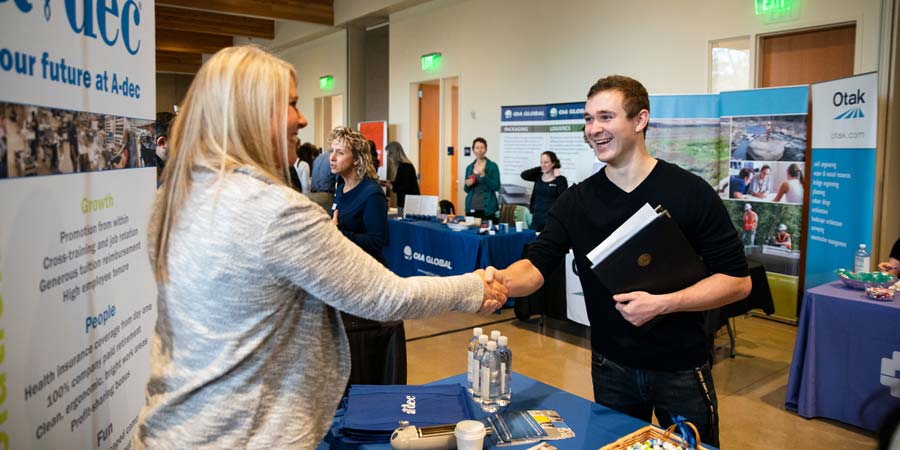
Micro-Internships: What Are They and How Can They Benefit Me?
by Wade Witherspoon
Looking for a short-term opportunity to gain field experience and professional growth? Consider the benefit of a micro-internship, a recently added option in George Fox University’s Career & Academic Planning Center.
What is a micro-internship, you ask? Unlike traditional internships, micro-internships can take place year-round, typically range from five to 40 hours of work, and are typically completed within a month. Micro-intern assignments are comparable to those typically given to skilled new hires (think conducting market research, performing financial analysis, assisting in lead generation, and crafting internal and external communication materials).
Micro-internships provide you with a tremendous opportunity. Not only do they allow you to explore different career paths and work on interesting assignments, they give you the chance to demonstrate your abilities to potential employers while building your professional portfolio and network.
The most appealing factor of micro-internships is that they are flexible work arrangements. Interns can capitalize on valuable work experience without being limited by class schedules and location, and many micro-internships can be completed at an intern’s leisure, so long as the project is completed by the end of the assignment. As a result, they can easily be incorporated into the busy life of a student.

In addition, due to the shorter duration and year-round availability of micro-internships, you can take advantage of several experiences. This means more opportunities to build up a diverse portfolio of skills and get ahead of the competitive job market.
Lastly, micro-internships provide networking opportunities that could lead to landing a full-time job, as they serve as a platform for you to showcase your knowledge, value and diligence.
The Career & Academic Planning Center offers two outstanding micro-internship opportunities through Forage and Parker Dewey, two high-quality companies that provide field experiences to thousands of students across the country. Both are free to use. Forage does not pay their interns, but Parker Dewey does. All employers have free use of Parker Dewey’s micro-internship platform, which provides access to more than 11 million college students and recent graduates seeking a short-term, paid, flexible, professional experience.

Allowing those from any school and any location to participate in a micro-internship lets employers witness the work of potential candidates for permanent positions in the future. They also connect employers with a more diverse array of students and mitigate the consequences of a bad hire, thereby encouraging employers to consider candidates they might otherwise overlook.
Ultimately, micro-internships can be a powerful alternative or complement standard internship programs. For companies, they offer a way to diversify their employee pipeline, reduce attrition, and forge relationships with ambitious young talent. For students, they offer an excellent opportunity to gain real-world experience and connections with more flexibility and fewer barriers to access.
In the end, micro-internships can reduce inequalities inherent in the traditional internship paradigm by providing invaluable professional training to a broad array of students.
If you’re interested in pursuing micro-internships, please contact Wade Witherspoon at wwitherspoon@georgefox.edu or 503-554-2338, or go to theforage.com or parkerdewey.com to get started.
Learn more about opportunities available by connecting with the Academic and Career Planning Center.






